Your support helps us to tell the story
Support NowThis election is still a dead heat, according to most polls. In a fight with such wafer-thin margins, we need reporters on the ground talking to the people Trump and Harris are courting. Your support allows us to keep sending journalists to the story.
The Independent is trusted by 27 million Americans from across the entire political spectrum every month. Unlike many other quality news outlets, we choose not to lock you out of our reporting and analysis with paywalls. But quality journalism must still be paid for.
Help us keep bring these critical stories to light. Your support makes all the difference.
So here’s a refreshing palate cleanser – the Kia Picanto. After some months, if not years, of being force-fed an almost continuous diet of obese SUVs, diesel, petrol, hybrid and, latterly, electric, getting behind the wheel of the little Picanto was extremely refreshing.
By the way, I exaggerate about the SUVs, and their slightly more svelte “crossover” siblings, because obviously they carry their own charms, as well as much luggage, and many car buyers wouldn’t consider anything else these days, but, trying to navigate our crowded streets and single-lane country carriageways, not to mention car parks, well, you surely take my point.
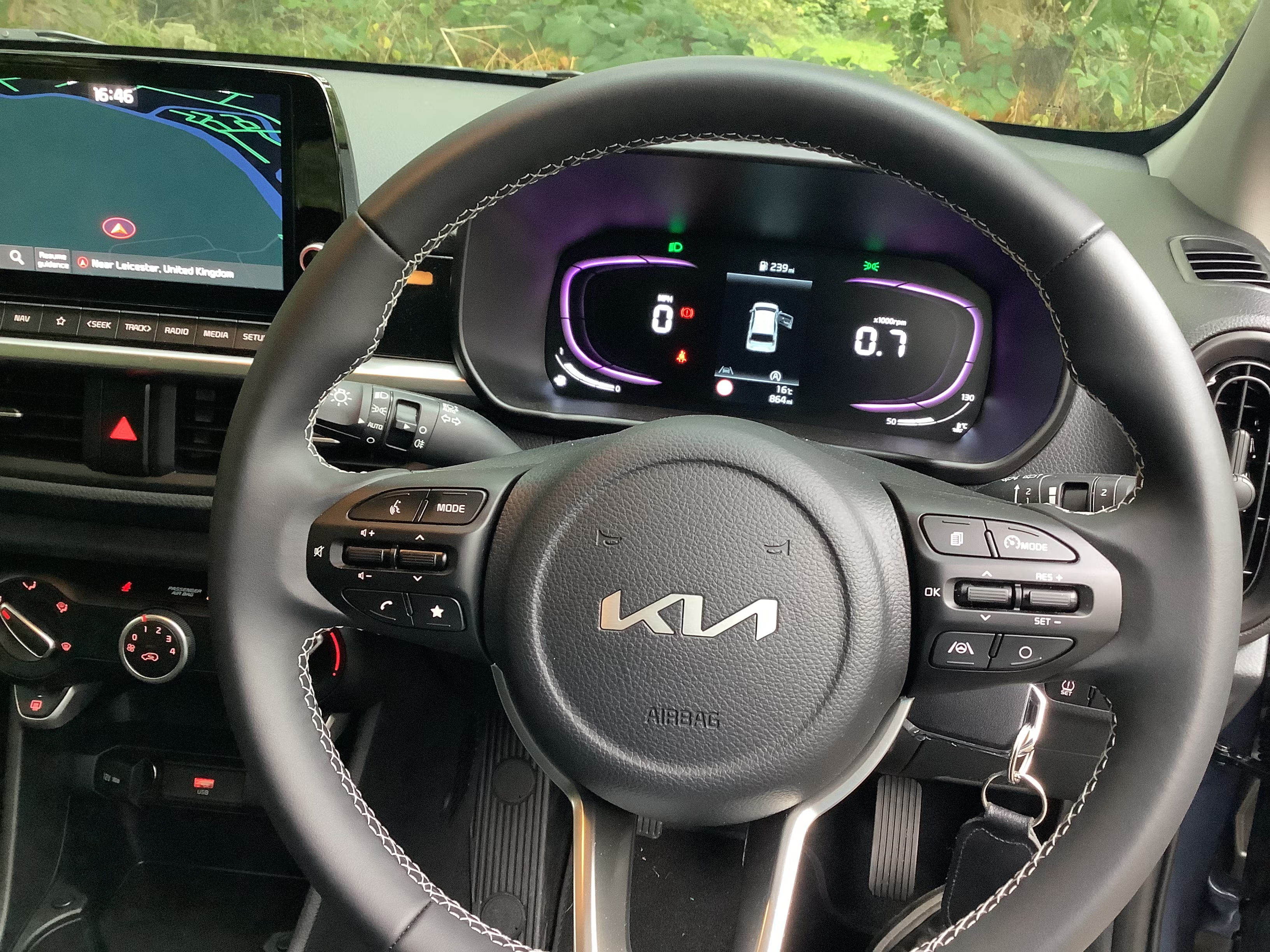
No such aggro with a Picanto. After extensive research, I have determined that the Picanto, at 1,625mm (a bit over five feet) wide, is the narrowest new car on sale in the UK (ie excluding quadricycles).
So, and it really does make a change, you can drive the thing without constantly having to think about whether you can safely pass another approaching vehicle.
Also, very much to the point, as an almost hysterical act of relief, I found myself laughing away when I first took the Picanto on the road, complete with revvy three-cylinder engine and five-speed manual gearbox. It was just a hoot to be this close to the road, in every sense.
It was a little like going back in time, and in a good way.
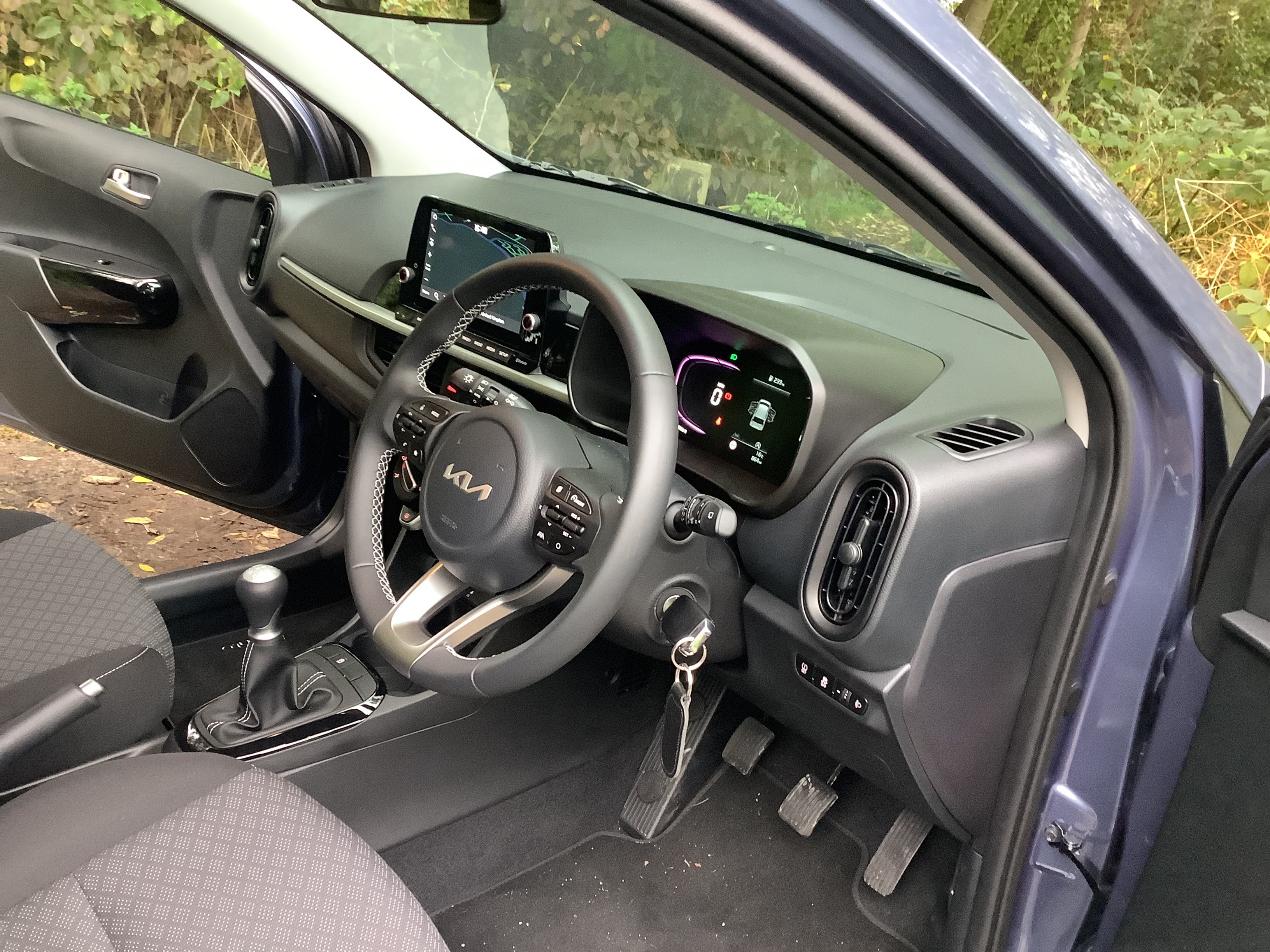
It’s not that surprising, in the sense that this iteration of the Picanto has actually been around since 2017, with two heavy facelifts behind it already.
An old design, fundamentally, that, curiously, has itself now exceeded the life of the still-standard seven-year Kia warranty (or 100,000 miles, since caught up with by some competitors). It’s worn well. Yes, it’s had more cosmetic surgery than (fill in name of appropriate Hollywood star here) and it’s all been to the good (unlike with… name of appropriate Hollywood star here).
The latest style of Kia “family” gives it a butch, chunky look – very contemporary – and adds much character to its otherwise inoffensive styling.
THE SPEC
Kia Picanto
Price: £15,595
Engine capacity: 1.0l petrol, 3-cyl, 5sp manual
Power output (hp): 62
Top speed (mph): 90
0 to 60 (seconds): 15.4
Fuel economy (mpg): 54.3
CO2 emissions (WLTP, g/km): 116
The slightly more rakish looking two-door version has gone, so now just the five-door ones are on sale, with four main trim levels: “2”, “GT-Line” and “3”, plus the top of the line “GT-Line S”.
This model gives you a “proper” 1.2 litre four-cylinder unit (markedly more refined) with an automatic gearbox. But all you need is the pretty well-equipped basic one with the reversing camera and the stylish 14-inch grey alloy wheels, which means you can make the most of the car’s minimal length (3,670mm/12ft) when parking. Given the very short snout, you don’t miss the lack of parking sensors up front.
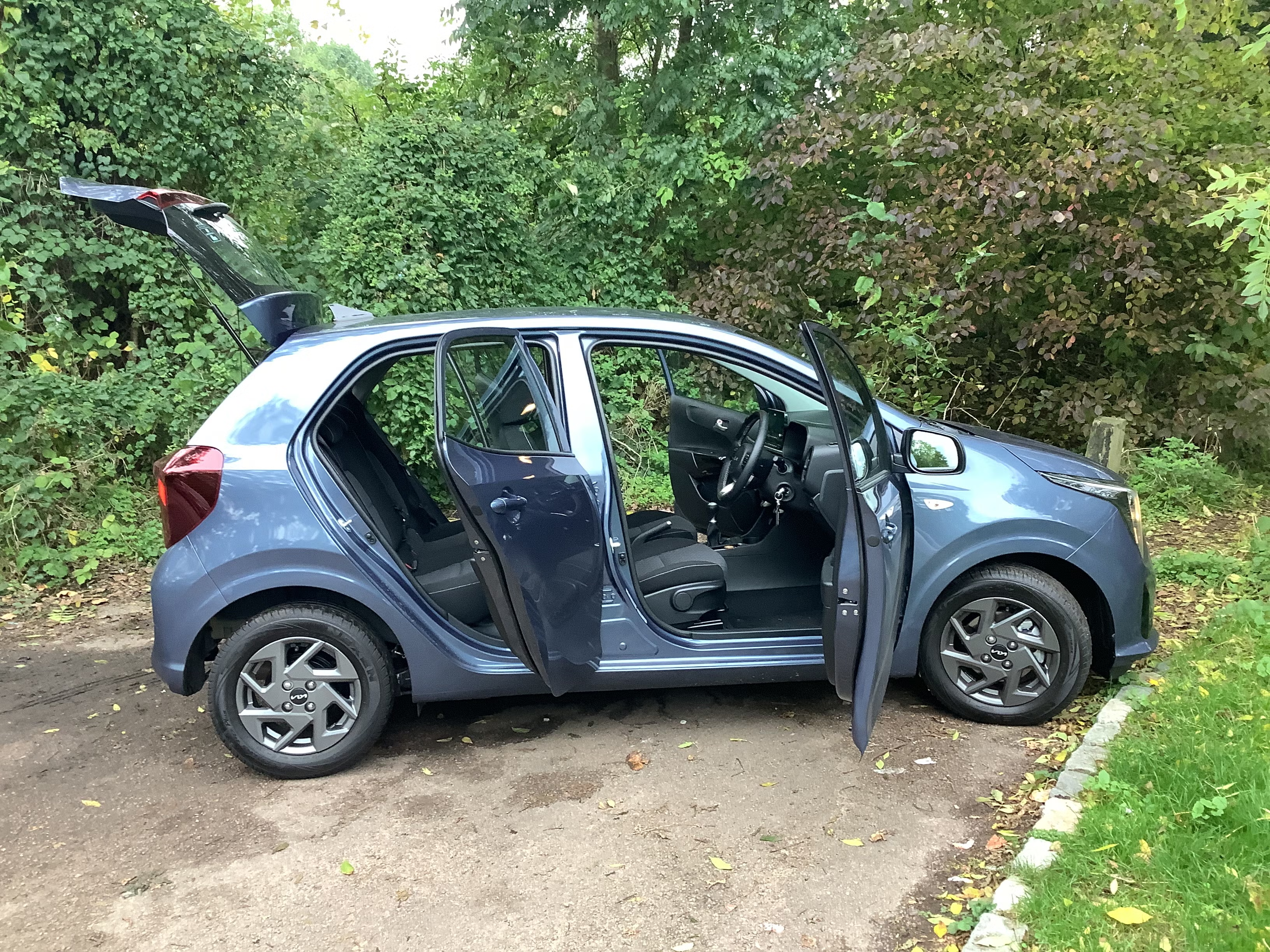
It’s more fun to drive than it has any right to be, given that it takes a frenetic 15 seconds to hit 60mph from rest, and is a bit too noisy at anything beyond that speed. Cruise control and the decent sound system are very welcome companions on a journey.
Apparently it will do 90mph, but I can see no obvious reason to feel the need to try, even were it legal. No matter, it enjoys the corners and never feels like anything is beyond its abilities.
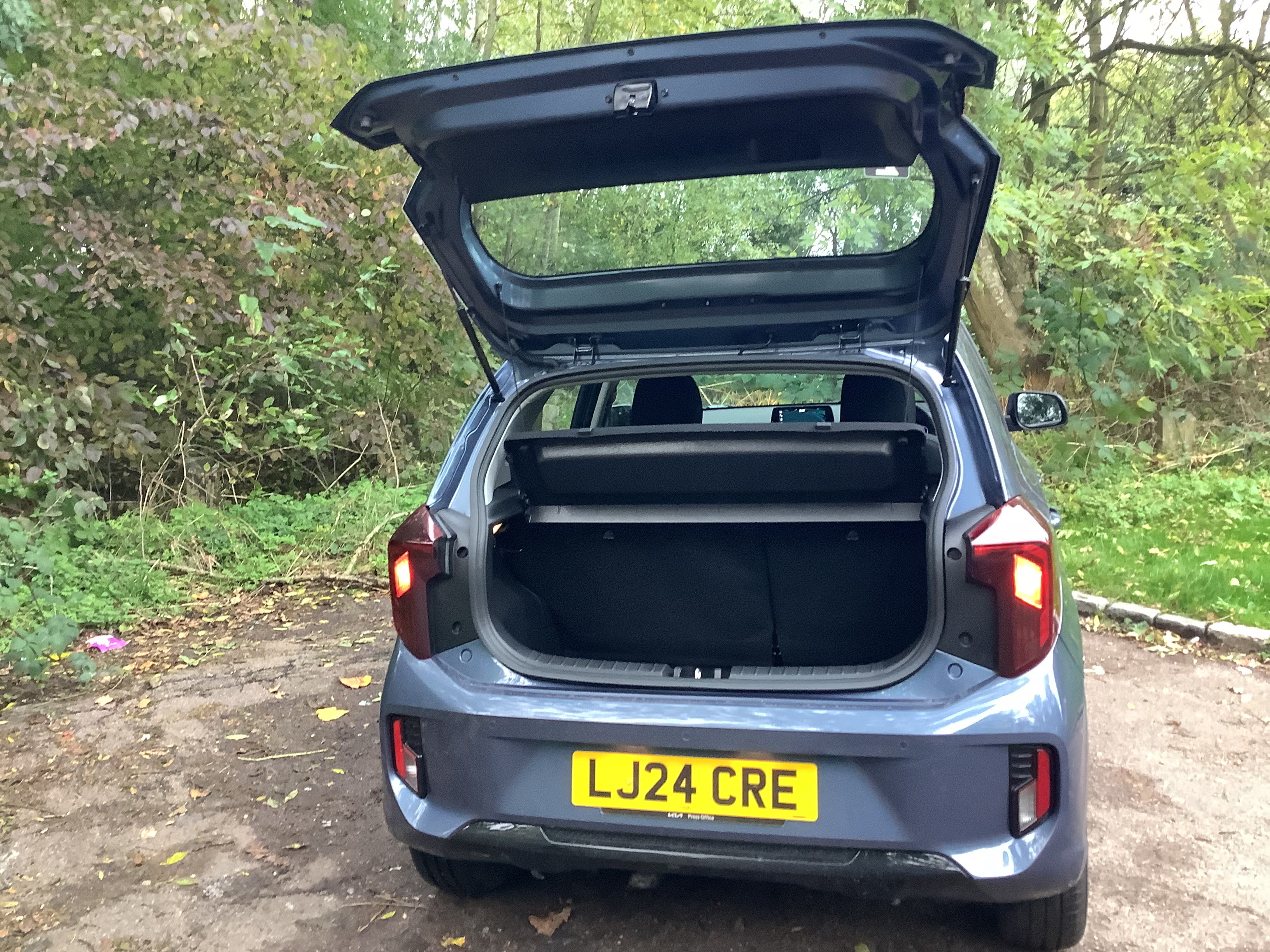
It’s very much a city car, then, and an ideal one, and makes a strong case for itself in a rather thin market.
The Fiat 500 hybrid and its sportier Abarth 500 derivative obviously have the edge on style, and is instantly lovable, with the Abarth being a noisy little ruffian with it.
The Hyundai i10 is fairly similar in cost and appeal, and, on recent experience, the Toyota Aygo X, slightly bigger, has the edge on a longer motorway journey – though the Picanto feels like it makes slightly more use of its modest interior space. The Suzuki Ignis is also an entertaining alternative, as is the extremely lively new MG3 Hybrid+.
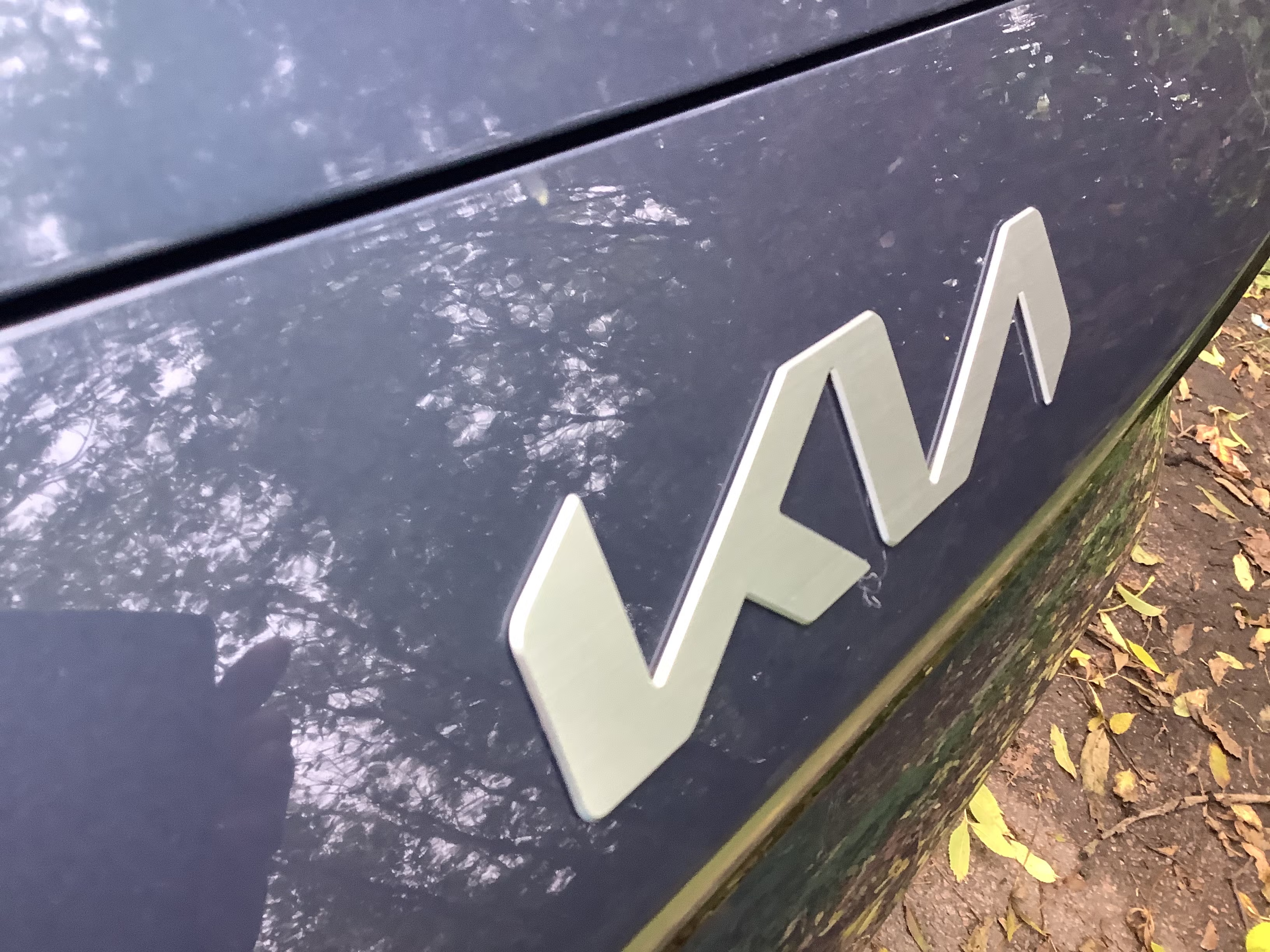
Other once-commonplace small rivals, such the VW Up/Skoda Citigo/Seat Mii have gone (the Up GTi and electric versions being especially regrettable losses). As have the old Peugeot 107/Citroen C1, the Ford Ka and, of course, the Smart ForTwo.
The reasons are fairly obvious. The trend to electrification means it’s not worth trying to make tiny cars because they’d also have to have tiny battery packs and, thus, a tiny range – which is antipathy to buyers. They’d also be more costly entrants for the sector. (The sadly brief career of the brilliant and enchanting Honda e proves the point eloquently).
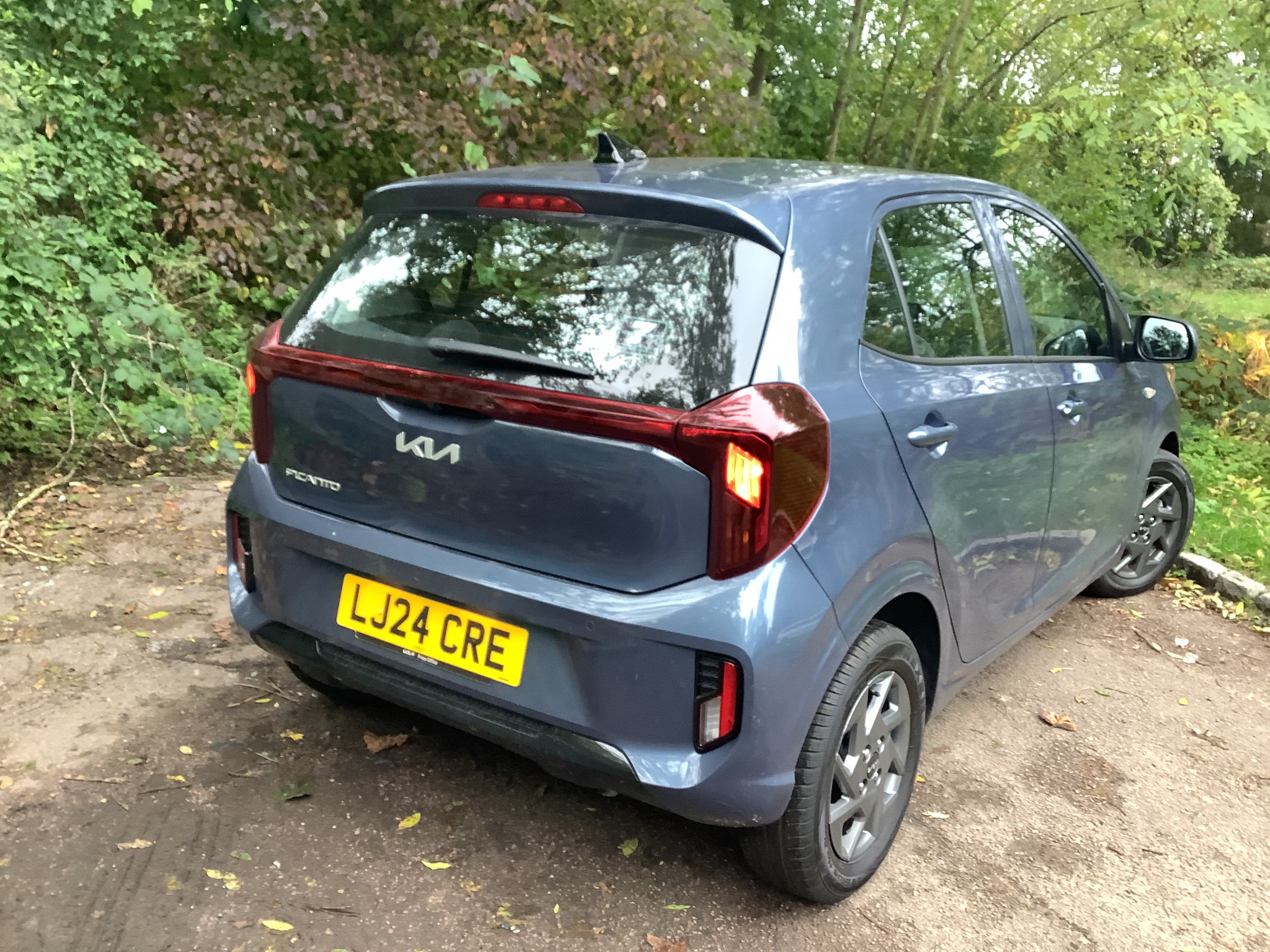
Mini cars make mini profits, and so eventually a manufacturer will run out of options to economically refresh old designs in the hope of clinging to sales in a world where consumers demand those ubiquitous SUVs and crossovers.
I should also add that the original Picanto 2017 received a 3 out of 5 safety rating, and hasn’t been retested.
The lack of competition is probably the reason for the Picanto’s only real failing: a starting price of some £16,000 – a little steep and spicy, if you’ll pardon the pun.
The city car, in other words, is dying out, but at least the Picanto is not going gentle into that good night.
Disclaimer: The copyright of this article belongs to the original author. Reposting this article is solely for the purpose of information dissemination and does not constitute any investment advice. If there is any infringement, please contact us immediately. We will make corrections or deletions as necessary. Thank you.



